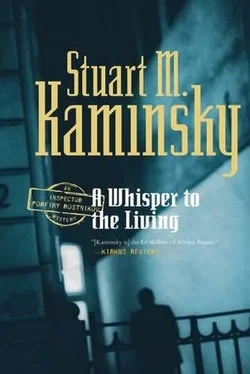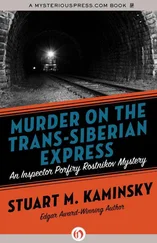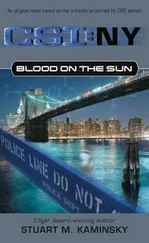And then one night in Bitsevsky Park, a few days after Aleksandr Chenko had been torn to pieces by bullets and Rostnikov had fallen wounded, the couple encountered a hulking man with an unsteady gait. They attacked. The hulking man turned out to be not nearly as old or as drunk as they had assumed.
His name was Andrei Anronkovich. He was the former middleweight wrestling champion of Moscow. He had fought back, but the woman had cracked his skull from behind. Responding to loud voices in the bushes, a policeman named Julian Ivanovich made his way to a secluded spot where the husband and wife stood over the dead Anronkovich.
The end of the Maniac murders had come, and if the victims of the young couple were to be counted, the sixty-four spaces on the chessboard had been filled. That still left two more copycats to catch.
It wasone of those unpredictably pleasant mornings in Moscow. The temperature had climbed to almost forty degrees Fahrenheit. The trees in Bitsevsky Park swayed gently and whispered to Porfiry Petrovich, who almost dozed on the bench.
He recognized perhaps two dozen people who hurried to the Metro station in the morning and emerged from it at night. There was little reason for Porfiry Petrovich to return here, but here he found himself waiting with the few remaining pastries after his visit to Paulinin.
Then the boy appeared. He was on time for school but would be late if he stopped to talk to the policeman. Yuri could not resist. This time he sat almost at the policeman’s side.
“Why are you here? The Maniac is dead.”
“I came to say good-bye to you.”
Yuri nodded in understanding and accepted a pastry from the bag the policeman extended to him. The one he picked was very sticky but most delicious, with dark berries and brown sugar. He planned to down it quickly, lick his fingers, and hurry off.
“We are moving,” the boy said as he ate.
“Where are you moving?”
“To Tiblisi. We are Georgians. My father and mother say we are no longer welcome in Russia. Some other kids have made remarks. I know little of what is happening or why, and my grandfather is now cursing a great deal.”
“I am sorry,” said Rostnikov.
“That is all right. We have family in Tiblisi. A job awaits my father.”
Yuri paused for almost half a minute, looked at the last of his pastry, and quietly said, “I do not want to go.”
“Yes,” Rostnikov said. “Yes.”
The boy rose from the bench and extended his hand. Porfiry Petrovich Rostnikov took it. The boy waved and was off.
Moments later Rostnikov rose and walked slowly into the park toward the swaying trees.
He shrugged his bandaged shoulder. Then he realized he wanted to weep.
But he did not weep.












